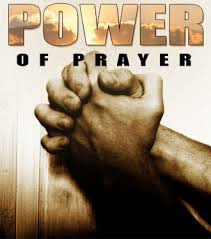So David inquired of the LORD, saying, “Shall I go up against the Philistines? Will You deliver them into my hand?”
And the LORD said to David, “Go up, for I will doubtless deliver the Philistines into your hand.” 2 Samuel 5:19
This month we’ve focused on prayer—the intentionality of it (2017 NDP Post Mortem), the consistency of it (Pray without Ceasing) and the responsibility of it (Watch and Pray). We closeout this series with a few insights as to another aspect of prayer that often goes “unpracticed”—divine inquiry.
Divine inquiry is the discipline of going FIRST to the Lord for guidance and direction. It is not a new phenomenon and is detailed in both the Old and New Testament. 2 Samuel 5:17-25 recounts David’s use of divine inquiry in the defeat of the Philistines in the Valley of Rephaim. On two occasions the irksome enemy of Israel was defeated by David. In both instances, David defers to the Lord of Host to determine the best plan of attack. The result was a resounding victory—driving back the Philistines a distance of fifteen (15) miles. Thus friend and foe could see the evidence of God’s protection and power on David and his kingdom.
Although God desires to counsel and guide believers, we have, unfortunately, developed “habits of behavior” that hinder our ability to hear Him clearly. As we move through life, we have, metaphorically, “gotten on the wrong BUS”—a bus that frequently takes us where we really don’t want to go. And what are the results? We miss the good things God has for our lives.
Busyness robs us of both energy and our ability to hear. Busyness most often is the result of wrong priorities. As a rule, we place priority on the things we value. Hearing from God deserves first priority. It’s hard to hear God when you’re multitasking; He gets caught between our thoughts and His voice becomes “muted”.
Unbelief houses all the lies we believe about ourselves and about God. We believe that God speaks to others but not us. We attribute this excuse to “being humble” but in reality we don’t believe that God is (His existence) or God can (His power) or God will (His promises)—so why talk to Him? There is always a “lie” in unbelief.
Self (sin, too) keep us from hearing from God. This happens when “self” (versus God) rules our life—self-righteousness, self-esteem, self-sufficiency, self-promotion. When self is on the “throne of our heart”, God finds no place for Him to sit (except on the outside). Sin separates us from a holy God. When sin dominates our life, God won’t talk or listen (Gen. 17:1). This condition, however, can be corrected (1 John 1:9).
SELAH: Are you on the “BUS”? Meditate on who God is, what God can do, and what God will do just for you.

